Strauss-Kahn and His Paris Reception
Mr. Strauss-Kahn is a dead parrot. He has no political future but does not yet seem to understand this.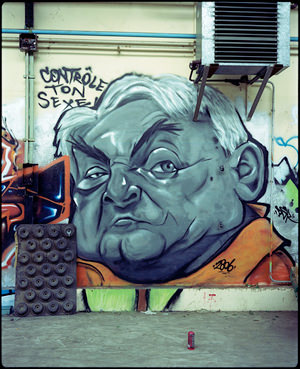
PARIS — Rather than return to Paris to reinsert himself into its political life, the former presumed Socialist candidate for France’s presidency, Dominique Strauss-Kahn, might better have retreated permanently to Marrakech, where he and his heiress wife have a house and the climate is better. He could work on a book.
In a bitter, carefully staged television appearance Sunday night, on the national station on which his wife was once the star political interviewer, he lamented that his encounter in New York last May with the hotel chambermaid Nafissatou Diallo had destroyed his longed-for “rendezvous with the French people.” He meant that occasion upon which he would have offered them the chance to elect him president of the French Republic.
Whether the French electorate had looked forward to this as much as Mr. Strauss-Kahn did last May is uncertain. But it is unmistakable today — to this not entirely infallible writer — that Mr. Strauss-Kahn is a dead parrot. He has no political future but does not yet seem to understand this. Certainly he was full of resolution when he entered the television studio Sunday evening, confronting the biggest television audience of the year and the impassive interviewer, his wife’s good friend, whose arms were crossed as if holding herself apart from this. She asked the questions as if from an agreed list.
An adviser on the staff of Prime Minister Francois Fillon said afterwards that it had been “a strange performance … it was as if he has never really grasped the impact this whole affair has had upon the French.” Strauss-Kahn’s position seemed to be that he has been the victim of the affair, first the prey of Diallo, then of the Port Authority and the New York police, then the prosecutor, and then the press.
The police and prosecutor were part of an American judicial system “shockingly” under the influence of money, he said without explanation. “When you are caught in the jaws of this machine, you have the impression that it can crush you. I was humiliated before I could even say a word in my defense.” Then there was Rikers Island, followed by an inconveniently small security apartment in Manhattan, a second bigger one where residents objected to him and to the baying journalists in the street, and finally — what a relief! — a $50,000-a-month Tribeca townhouse, now a New York tourist attraction.
As for the irresistibly seductive Ms. Diallo, she may have been part of a trap, a plot, he suggested. It was, after all, a French-owned hotel, and who knows what goes on in French hotels.
As for what happened, he said, “we’ll never know now what happened in that hotel room.”
You’d think he knows, but he isn’t saying. Certainly the interviewer did not ask. Ms. Diallo says he raped her. This was one of several occasions in the interview when Mr. Strauss-Kahn was, as they say in Washington, economical with the truth.
The prosecutor dropped the case because, despite the physical evidence in his possession, he did not think he could get a unanimous conviction from a jury. Mr. Strauss-Kahn, waving papers, claimed this meant that he was totally cleared, proven innocent — which is not true. Presumably we will never know more, though, unless the civil cases that have been filed against him in New York and Paris come to trial.
As for the French case, Strauss-Kahn admitted putting his arm around the writer Tristane Banon eight years ago, but dismissed as the “imagination” of a hysterical young girl (she was 24 at the time) her claim that he double-locked the door, tore at her clothes and attempted rape (he was, according to her description, “like a chimpanzee in rut”). After Sunday’s interview, she said bitterly, “What have I to gain from all this? He’s under accusation of rape in two countries and he’s treated like a rock star. A woman who makes a rape complaint in France is treated as a liar.” Ms. Banon is determined to press her case, if necessary through a civil procedure that requires an examining magistrate to be appointed to investigate the matter.
During his interview, Strauss-Kahn let slip that he had made a political deal with the head of the Socialist party, Martine Aubry, who is a candidate for the party nomination for the presidency, presumably that if he came back to France intending to run (has he?) she would yield her place to him. This has set off a fine mess among Socialists, even though they are habituated to wars among Socialist “elephants.”
The party’s main candidates for the nomination are, at present, Ms. Aubry, Segolene Royal and the former secretary-general of the party, Francois Holland. They and the minor candidates debated on television last week. The unfortunately unglamorous Ms. Aubry was unimpressive; Mr. Holland, said to be a raconteur and great company among friends, had nervous perspiration on his upper lip and promised to hire more teachers; and the notoriously glamorous Ms. Royal, who was the Socialist candidate in 2007 and lost, read her introduction from a script. It has been a good week for President Nicolas Sarkozy, who plans a second term.
Visit William Pfaff’s website for more on his latest book, “The Irony of Manifest Destiny: The Tragedy of America’s Foreign Policy” (Walker & Co., $25), at www.williampfaff.com.
© 2011 Tribune Media Services, Inc.
Your support matters…Independent journalism is under threat and overshadowed by heavily funded mainstream media.
You can help level the playing field. Become a member.
Your tax-deductible contribution keeps us digging beneath the headlines to give you thought-provoking, investigative reporting and analysis that unearths what's really happening- without compromise.
Give today to support our courageous, independent journalists.
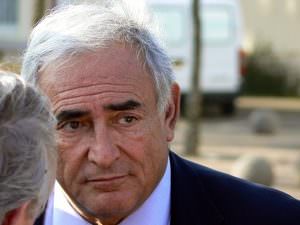


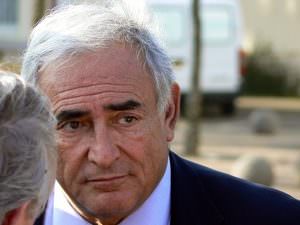
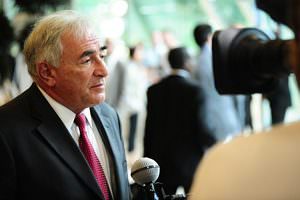
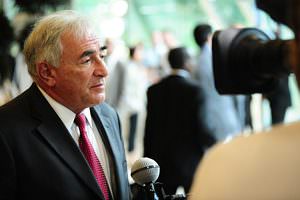
You need to be a supporter to comment.
There are currently no responses to this article.
Be the first to respond.